21 Dividend Increases Announced During the COVID Crisis
These 21 stocks were doling out dividend increases as the coronavirus crisis accelerated – and as many stocks were cutting or outright suspending their payouts.


Profit and prosper with the best of Kiplinger's advice on investing, taxes, retirement, personal finance and much more. Delivered daily. Enter your email in the box and click Sign Me Up.
You are now subscribed
Your newsletter sign-up was successful
Want to add more newsletters?

Delivered daily
Kiplinger Today
Profit and prosper with the best of Kiplinger's advice on investing, taxes, retirement, personal finance and much more delivered daily. Smart money moves start here.

Sent five days a week
Kiplinger A Step Ahead
Get practical help to make better financial decisions in your everyday life, from spending to savings on top deals.

Delivered daily
Kiplinger Closing Bell
Get today's biggest financial and investing headlines delivered to your inbox every day the U.S. stock market is open.

Sent twice a week
Kiplinger Adviser Intel
Financial pros across the country share best practices and fresh tactics to preserve and grow your wealth.

Delivered weekly
Kiplinger Tax Tips
Trim your federal and state tax bills with practical tax-planning and tax-cutting strategies.

Sent twice a week
Kiplinger Retirement Tips
Your twice-a-week guide to planning and enjoying a financially secure and richly rewarding retirement

Sent bimonthly.
Kiplinger Adviser Angle
Insights for advisers, wealth managers and other financial professionals.

Sent twice a week
Kiplinger Investing Weekly
Your twice-a-week roundup of promising stocks, funds, companies and industries you should consider, ones you should avoid, and why.

Sent weekly for six weeks
Kiplinger Invest for Retirement
Your step-by-step six-part series on how to invest for retirement, from devising a successful strategy to exactly which investments to choose.
Dividend increases, in normal times, are a commonplace occurrence that you can read about by the dozens every week.
But these aren’t normal times.
The COVID-19 pandemic and related shutdowns have forced many businesses into survival mode, looking for ways for to preserve cash and ride out the economic storm. In fact, during the month of April, S&P 500 components announced more dividend cuts and suspensions than they did dividend increases. Smaller companies outside the blue-chip index suffered the same fate, with dozens reducing or eliminating their payout programs altogether.
But if dividend hikes are a sign of fiscal strength during normal times, they’re a downright bold statement when they’re made in the middle of a recession. And some companies have indeed provided payout growth throughout the past couple of months – many of them with longstanding streaks, including several members of the S&P Dividend Aristocrats that have improved their dividends for at least 25 consecutive years.
Here are 21 stocks that have announced dividend increases during the COVID-19 crisis so far. This list can serve as a starting point for income investors looking for secure payouts with the potential for dividend growth over time.
Data is as of June 28. Dividend yields are calculated by annualizing the most recent payout and dividing by the share price.
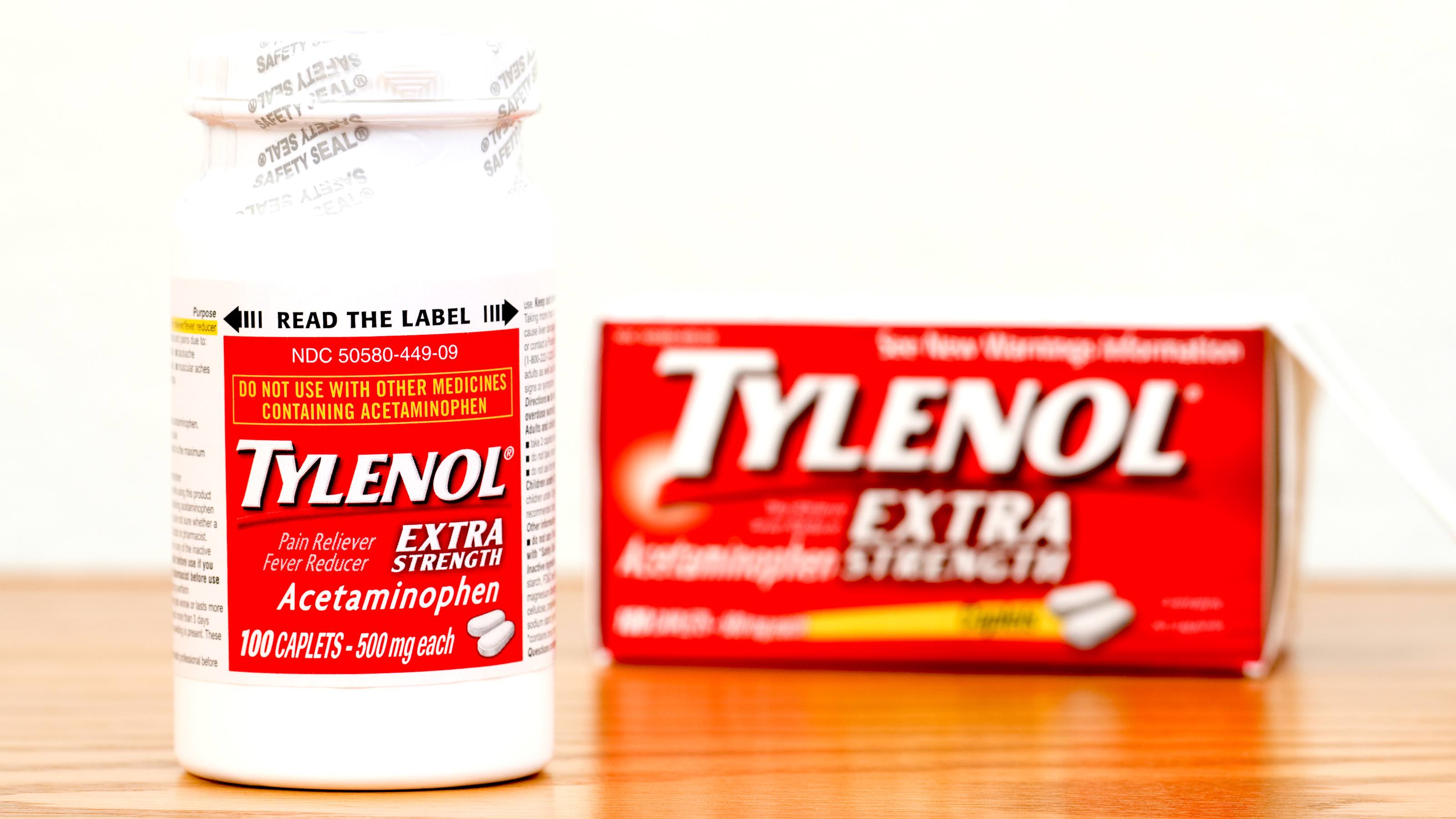
Johnson & Johnson
- Market value: $363.3 billion
- Most recent dividend increase: 6.3%
- Dividend yield: 2.9%
Johnson & Johnson (JNJ, $137.81) is a market leader in pharmaceuticals, consumer health care and medical devices. Pharmaceuticals are the company’s largest business at more than half of sales, and are powered by blockbuster drugs such as Stelara, Imbruvica, Remicade and Simponi. In addition, most of the company’s consumer health brands are household names like Listerine, Tylenol, Motrin and Zyrtec.
Johnson & Johnson has emerged in 2020 as a player in the coronavirus space during 2020, with a COVID-19 vaccine entering Phase 1/2 trials later this summer and initial batches anticipated for emergency use in early 2021.
In recent years, litigation around its talc-based baby powder has been an overhang on JNJ stock. In May, the company went so far as to halt sales of its baby powder in North America.
Johnson & Johnson’s March-quarter sales grew 3.3% year-over-year, and profits jumped by nearly 10%. Results were fueled by higher sales of pharmaceuticals and consumer health products, which were partially offset by lower medical device sales. JNJ reduced its 2020 sales and EPS guidance, but still looks for at least $7.90 of adjusted EPS this year, which is almost enough to cover its dividend twice.
The company announced a 6.3% hike to its payout in April, to $1.01 per share quarterly, marking its 58th consecutive year of dividend increases. That puts JNJ stock among a handful of Dividend Kings that can boast a half-century or more of uninterrupted payout hikes.
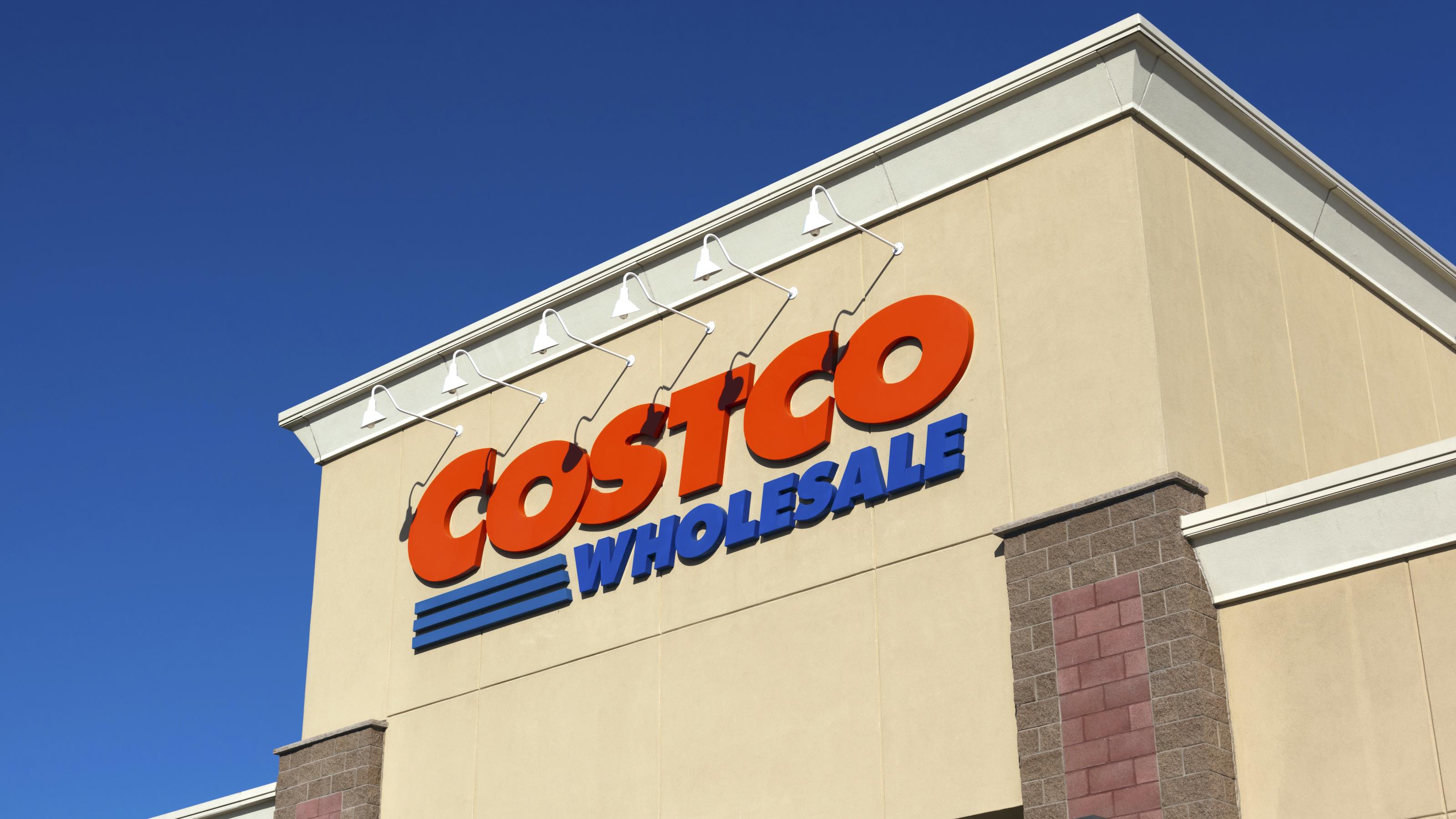
Costco Wholesale
- Market value: $130.9 billion
- Most recent dividend increase: 7.7%
- Dividend yield: 0.9%
Warehouse club operator Costco Wholesale (COST, $296.56) ranks as the third largest retailer worldwide. The company offers groceries, appliances and other goods to nearly 102 million card-carrying members through a network of 787 warehouses in a dozen countries, including 647 in the U.S. and Canada and 39 in Mexico.
Roughly two-thirds of company profits come from selling memberships to shop in its stores. The number of card-carrying Costco members increased 4.7% year-over-year during the March quarter, and membership renewal rates remained high at 88.4%.
Customers shop at Costco because of its excellent wine selection (Costco is the largest wine retailer in the U.S.) and its popular Kirkland-branded products. In the early months of the COVID-19 pandemic, Costco experienced comparable-store sales growth (stores open at least 12 months) of 12.1% in February and 9.6% in March, before dropping to 4.7% in April. Overall, sales increased 7.3% during the March quarter.
Costco is making big investments in its e-commerce capabilities and recently acquired logistics company Innovel Solutions for $1 billion to accelerate e-commerce sales growth. While e-commerce sales surged 64.5% during the March quarter, Costco still has a long way to go to match the overall e-commerce figures of larger competitors like Walmart (WMT) and Amazon.com (AMZN).
Costco began paying dividends in 2004 and has hiked payments by roughly 13% annually since then 16 years. That includes a 7.7% dividend increase announced in mid-April. While the dividend yield is paltry at less than 1%, it accounts for a low 33% of profits, meaning the payout is both safe and has room to grow. Also, Costco occasionally rewards investors with big special dividends.

American Water Works
- Market value: $22.5 billion
- Most recent dividend increase: 10.0%
- Dividend yield: 1.8%
American Water Works (AWK, $124.08) is the country's largest publicly traded water utility. It provides drinking water and wastewater processing for more than 15 million Americans across 46 states.
The majority of the company's profits come from its regulated water business, which has grown through a combination of acquisitions and rate increases. American Water Works acquired 6,200 new customer connections via acquisitions during the March quarter and has pending acquisitions that bring an additional 45,800 connections. The company benefited from a 2.9% increase in base water rates during the March quarter and expected its base rates to grow 7% to 8% annually through 2024.
American Water Works' adjusted earnings per share (EPS) improved by almost 10% YoY in the March quarter as a result of new customers, acquisitions and expansion of its non-regulated utility business. The company is guiding for 14% EPS growth in 2020, 7% to 10% annual EPS gains through 2024 and similar dividend growth.
AWK's payout has grown every year since its 2008 initial public offering (IPO), and at a 10% annual rate over the past five years. Payout is targeted at 50% to 60% of earnings, which is conservative for a regulated utility business.
13 Best Vanguard Funds for the Next Bull Market
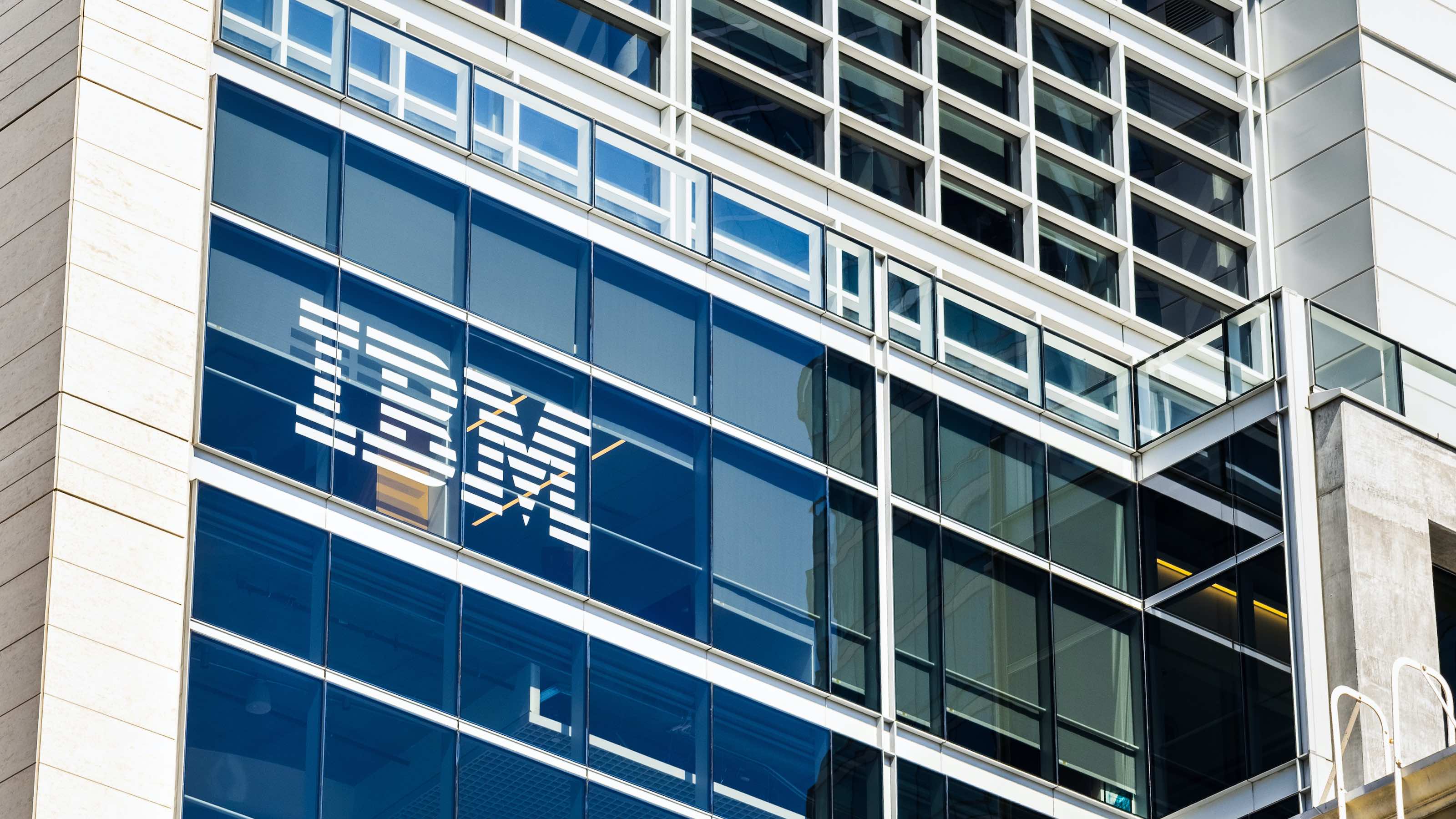
International Business Machines
- Market value: $104.1 billion
- Most recent dividend increase: 0.6%
- Dividend yield: 5.6%
International Business Machines (IBM, $117.19) is shifting its business focus from computer hardware to computer software and services, with a heavy emphasis on artificial intelligence (AI) and cloud computing. The company made a major push into these higher-growth areas in 2019 by acquiring open-source software leader Red Hat for $34 billion.
Contributions from higher-growth businesses enabled IBM to beat consensus analyst EPS estimates during the March quarter and marginally improve upon total revenues (adjusted for divested businesses and currency effects). Cloud revenues improved 19%; Red Hat revenues rose 18%.
More important to the dividend: IBM generated $1.4 billion of free cash flow during the March quarter, which neatly covered what it needed to cover its distribution. That's despite adjusted earnings falling by 18% due to a business restructuring that eventually will produce $2 billion in annual savings.
Recognizing that COVID-19 shutdowns will likely cause customers to hold off on big software investments, IBM trimmed its workforce in May and withdrew its full-year 2020 financial guidance. However, the company did make a token increase to the payout of less than 1%, far less than its five-year average of about 5%, to mark its 25th consecutive year of dividend growth. That makes it eligible for Dividend Aristocrat membership.
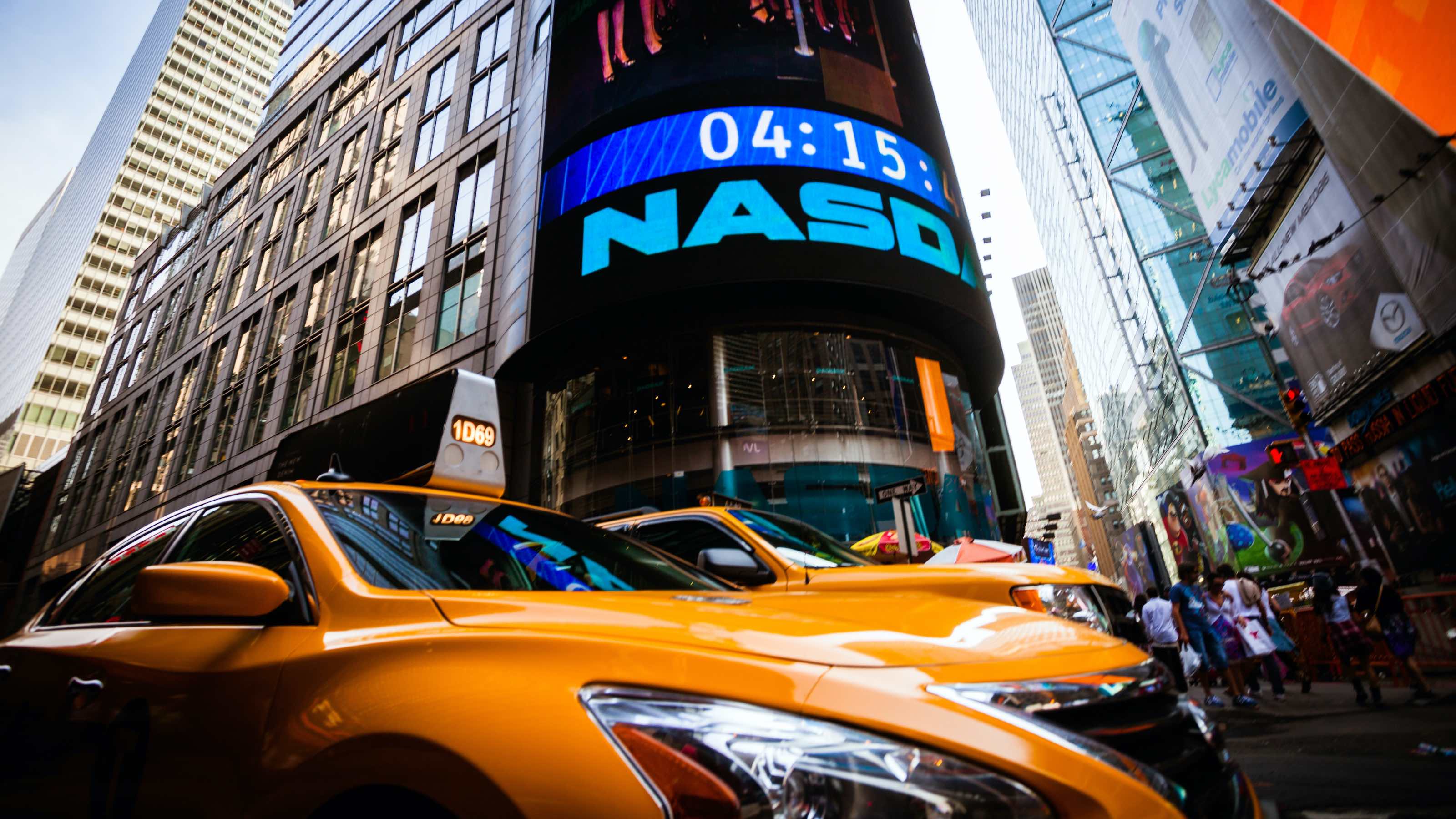
Nasdaq
- Market value: $19.0 billion
- Most recent dividend increase: 4.3%
- Dividend yield: 1.7%
Best known for the Nasdaq Stock Market exchange that provides stock listings for more than 3,000 companies and exchange-traded funds, Nasdaq (NDAQ, $115.82) is also a global technology company, providing data, analytics, software and services to capital markets and industries. Market services, which include trading and clearing operations, account for 40% of revenues. Nasdaq's other businesses are information services (30% of revenues), corporate services (18%) and market technology (12% of revenues).
Client services were recently expanded via the acquisitions of investment data firm Solovis and OneReport, which specializes in ESG (environmental, social and governance) data.
Nasdaq's revenues rose 11% YoY during the March quarter as a result of a COVID-related surge in equity trading volume, organic growth in non-trading businesses, and acquisitions. Over the next three to five years, Nasdaq targets 5% to 7% annual organic growth in its non-trading businesses.
Adjusted EPS improved 23%, and the company strengthened its balance sheet by increasing cash reserves and extending maturity dates on senior debt. Nasdaq has cash totaling $1.0 billion and net debt of $3.1 billion.
Nasdaq scored a major win in May when Stifel Financial (SF) chose its technology to power its alternative trading platform, which is scheduled to go live in June with more than 3,500 institutional clients.
Nasdaq has raised dividends seven years in a row and a 14%-plus annual rate over the past five years, including a 4%-plus increase announced in April. A combination of low payout (35%) and high recurring revenues from annual exchange listing fees provides safety for the dividend.

Pool Corp.
- Market value: $10.4 billion
- Most recent dividend increase: 5.5%
- Dividend yield: 0.9%
Pool Corp. (POOL, $260.94) is the world's largest distributor of swimming pool supplies. The company benefits from 60% recurring revenues; the pool chemicals and other products it sells are necessary for ongoing pool maintenance.
Pool Corp. sources product from more than 2,200 vendors and sells to more than 120,000 customers, including pool and landscape maintenance and service businesses, construction contractors, specialty retailers and national accounts. Sales are made through a network of 356 sales centers across North America and 22 sales centers in Europe and Australia.
Although Pool Corp. is guiding for flat to slightly lower 2020 EPS, the company's longer-term outlook targets 6% to 8% annual sales growth and EPS growth in the mid-teens.
POOL reported a strong March quarter, with sales up 13% and adjusted EPS growing 20%. Pool Corp. cautioned investors, however, that stay-at-home orders and social distancing were negatively impacting April sales.
Nonetheless, Pool Corp. raised its dividend 5.5% in April, marking a decade of uninterrupted payout hikes. The increase, while nice to see, was well below the company's 17% average annual dividend growth rate over five years.
The company's dividend is supported by an excellent balance sheet that shows robust cash flow generation, low leverage and $522 million available under existing lines of credit. The payout is comfortable at just 38% of earnings.
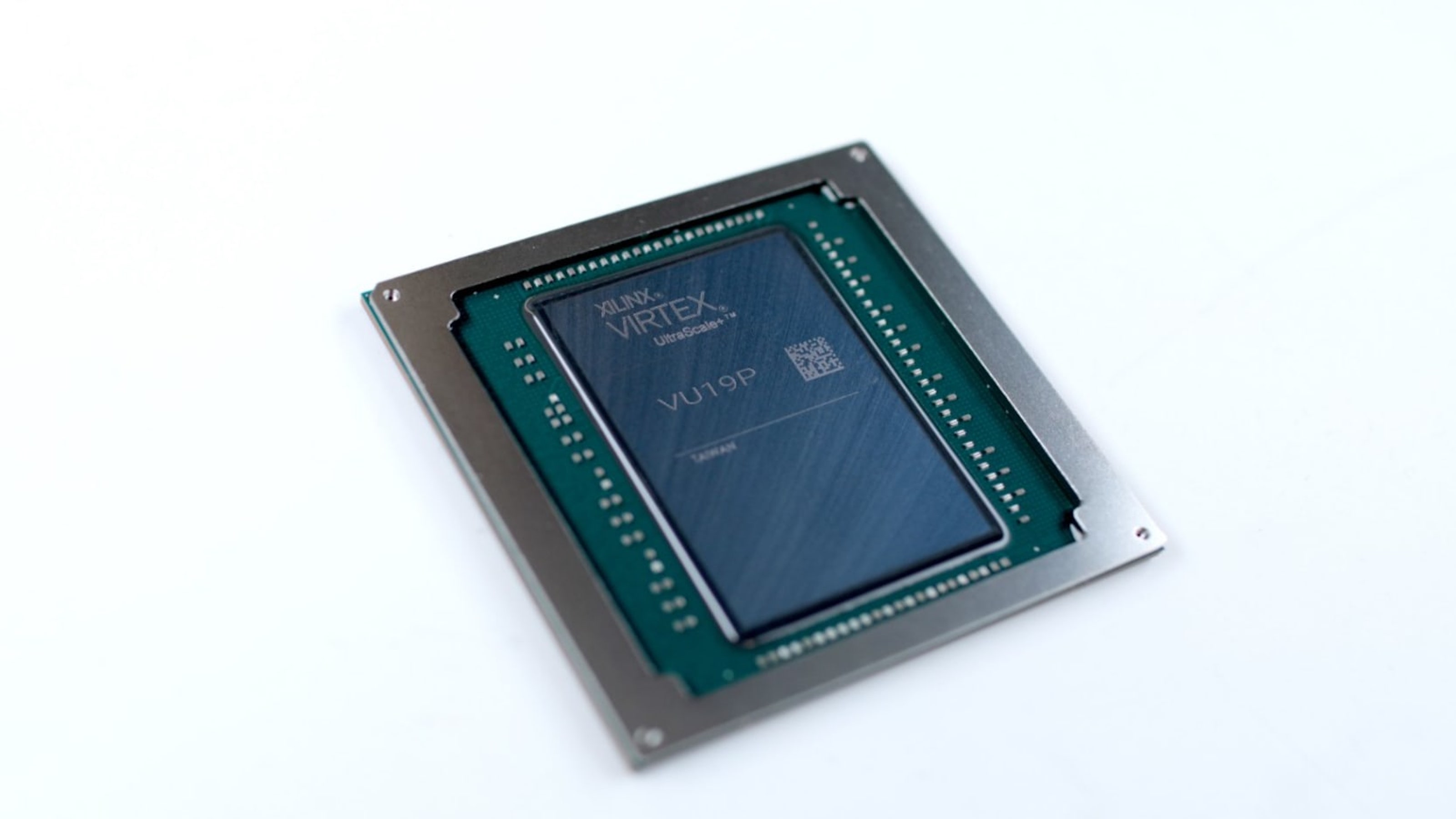
Xilinx
- Market value: $22.1 billion
- Most recent dividend increase: 2.7%
- Dividend yield: 1.7%
Xilinx (XLNX, $91.02) makes programmable computer chips that are used in aerospace, telecom, defense, automotive, industrial and data center applications. The company is benefitting from 5G rollouts; data centers are using its field programmable gate arrays (FPGAs) to boost transmission speeds, and experts are forecasting 50% annual growth in FPGAs demand through 2023. Xilinx claims a 60% share of the worldwide FPGA market. Automotive applications are also driving chip growth. FPGAs are needed to power advanced driver assistance systems.
The company closed out fiscal 2020 ended March on a high note with full-year revenues up 3%, although COVID-19 effects reduced March-quarter revenues and adjusted EPS. The decline also was attributable to a slowdown in 5G rollouts by carriers and the ongoing impact of U.S. export restrictions on Huawei, an important Xilinx customer. The company anticipates June-quarter revenues will also be below last year's levels.
Despite COVID-19 headwinds, Xilinx's primary long-term growth catalyst – 5G rollouts – remains intact. In addition, Xilinx has $2.3 billion of cash and only $1.25 billion of debt and long-term liabilities, providing ample liquidity to ride out a downturn.
Investment research firm Jefferies added Xilinx to its list of 10 "cash flow darlings" in May. These are companies that grew cash flow more than 10% during the March quarter and have balance sheets showing more equity than debt.
Xilinx has delivered 15 straight years of dividend growth, including roughly 4% annual growth over the past five years. Its latest hike, a 2.7% uptick, was announced in April. A dividend payout ratio of 55% provides a sufficient cushion for more gains.

Newmont Goldcorp
- Market value: $47.6 billion
- Most recent dividend increase: 78.6%
- Dividend yield: 1.7%
Newmont Goldcorp (NEM, $59.34) became the world's largest gold miner in 2019 by acquiring Canadian rival Goldcorp in a $10 billion deal.
The merged entity owns low-risk gold mining assets in North and South America, Australia and Africa. The company has the industry's largest gold reserves: nearly 100 million ounces representing more than 10 years of reserve life. Newmont Goldcorp produces more than 6.0 million ounces of gold annually, as well as 1.2 million ounces of gold equivalents from copper, silver, zinc and lead.
Newmont Goldcorp's revenues rose 43% during the March quarter, leading to 21% adjusted EPS growth and a 75% spike in free cash flow. Growth was attributable to a 20% increase in production, as the company commenced operations at recently acquired Goldcorp mines, and higher realized gold prices.
The COVID-19 impact on the company's mining operations has been modest so far; operations representing 90% of planned 2020 production were still on-line during May.
Newmont Goldcorp signaled its commitment to shareholder value by raising its dividend a whopping 79% in April to 25 cents per share. Dividend growth has been inconsistent since the company began paying out cash distributions in 1989; that said, the company did reward investors with a big one-time special payout last year.
Newmont Goldcorp generated more than $1.4 billion of free cash flow last year, which more than covered $889 million of dividend payments (including the large special dividend). The company expects to generate $10 billion of free cash flow over the next five years, assuming gold prices at or above $1,500 per ounce.
The company's dividends are also supported by an exceptional balance sheet that includes $3.7 billion of cash, debt that's just 0.7 times adjusted EBITDA, and $3 billion of borrowing capacity on its credit facility.
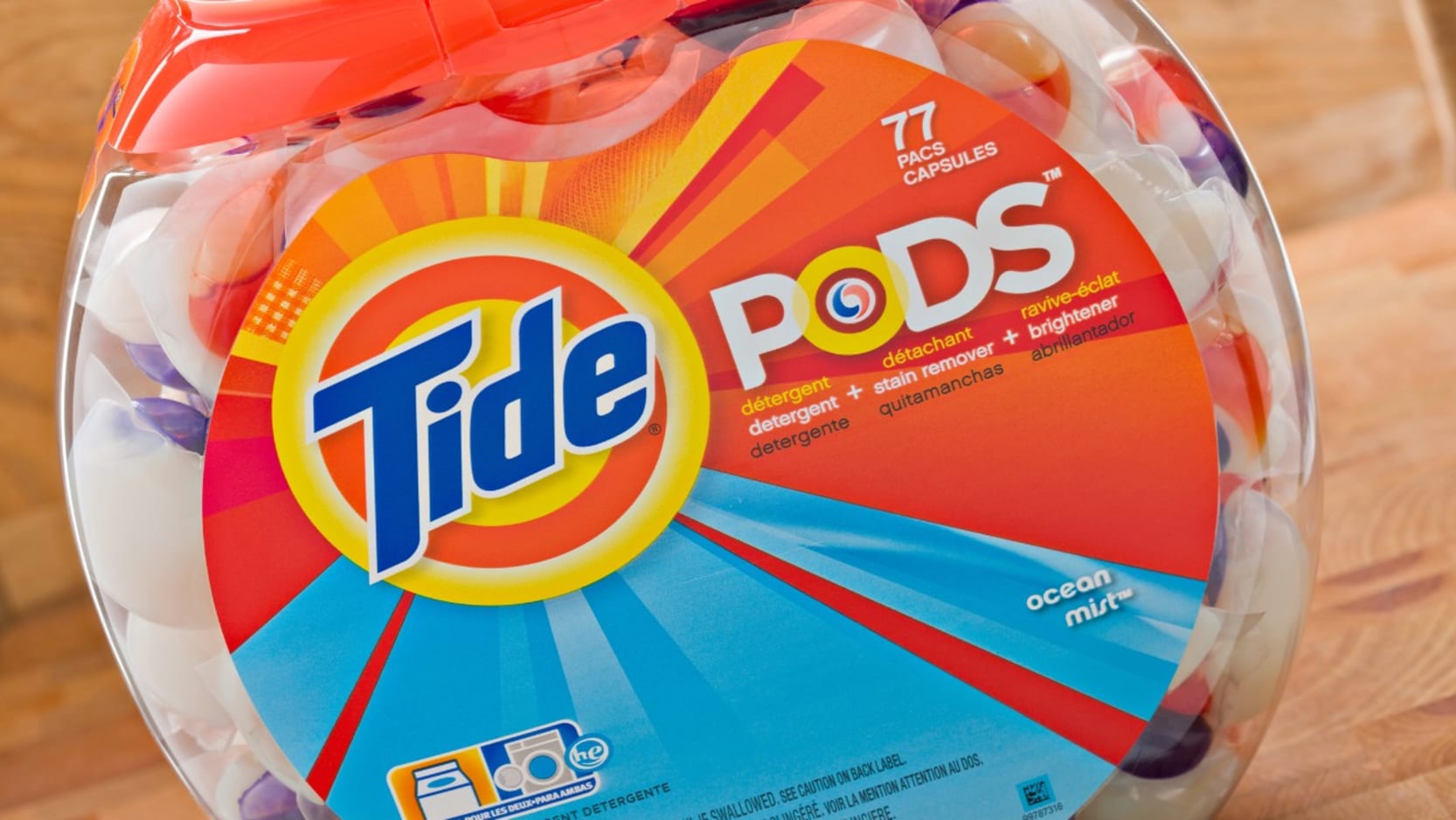
Procter & Gamble
- Market value: $285.3 billion
- Most recent dividend increase: 6.0%
- Dividend yield: 2.7%
Procter & Gamble (PG, $115.23) owns a wide number of top brands in the personal care space: Head & Shoulders, Old Spice, Gillette, Crest, Oral-B, Gain, Tide, Cascade, Dawn, Pampers, Charmin and more. The company generated $67.7 billion of sales last year and operates worldwide.
Strong demand for the company's health, hygiene and cleaning products related to the COVID-19 pandemic fueled 6% organic sales growth during the March quarter and 10% gains in core EPS. Procter & Gamble also raised its 2020 revenue growth guidance to 4% to 5% from earlier guidance of 3% to 4% – a welcome development considering many other companies have been withdrawing guidance altogether.
JPMorgan analysts named Procter & Gamble one of their top picks benefiting from stay-at-home rules during the coronavirus pandemic. The firm writes that P&G is eating market share as a result of its sales through big-box retailers and cubs, as well as its superior supply chain.
Procter & Gamble hiked its dividend by 6% in April, marking its 64th consecutive year of dividend growth and 130th year of paying dividends. This was a bigger-than-usual increase; annual hikes over the last five years had averaged about 3.6%. The payout is a decent 64% of earnings, which leaves room for modest growth in the future.
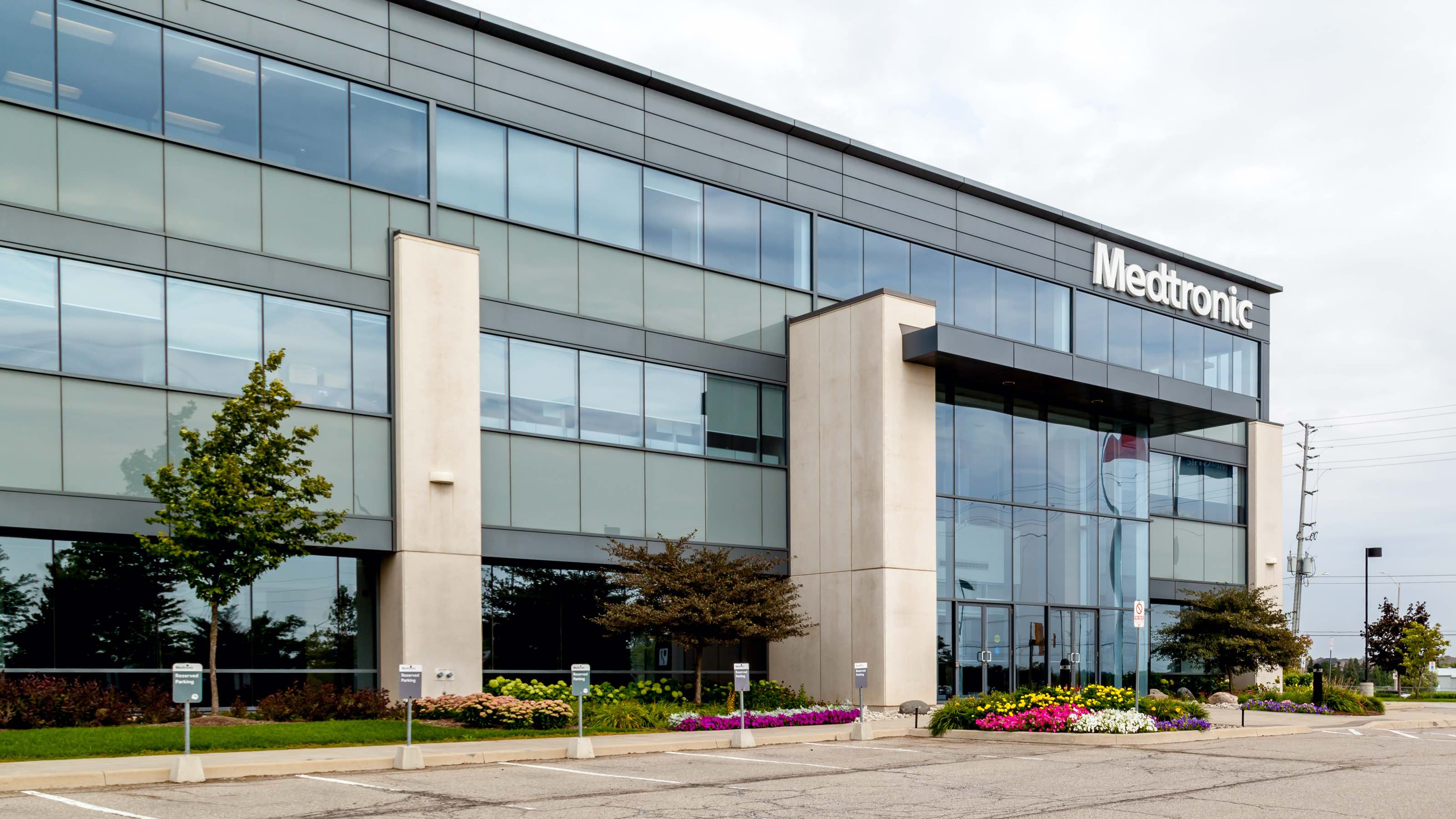
Medtronic
- Market value: $119.7 billion
- Most recent dividend increase: 7.4%
- Dividend yield: 2.6%
Medical device manufacturer Medtronic (MDT, $88.77) commands just less than two-thirds of the worldwide insulin pump market. The company also sells devices for cardiac/vascular, minimally invasive and restorative therapy applications and boasts a rich development pipeline, with more than 290 clinical trials currently underway.
Medtronic sells critical medical supplies like pacemakers, ventilators and patient monitors that are unaffected by COVID-19. However, sales of other medical devices are slipping due to postponements of elective medical procedures. As a result, the company's April-quarter revenues dropped 26% and adjusted EPS declined 62%. Full-year 2020 adjusted profits fell 11%.
Despite all this, Medtronic improved 2020 free cash flow and converted 97% of adjusted earnings into FCF.
Medtronic is well-positioned to manage through a downturn due to a solid balance sheet showing $10.9 billion of cash and investments, no near-term debt maturities and $3.5 billion of available credit.
Morgan Stanley analyst David Lewis expects medical device stocks to recover quickly (six to 12 months) after the initial COVID-19 shock when elective surgeries resumes. He mentioned MDT stock as one of his favorite large-cap names in this space.
Medtronic is a Dividend Aristocrat that has delivered 43 years in a row of dividend growth. The company aims to return at least 50% of free cash flow to investors annually through dividends and share repurchases. Dividend growth has averaged nearly 9% annually over the past five years, including a 7.4% increase announced in May.

Chubb
- Market value: $56.0 billion
- Most recent dividend increase: 4.0%
- Dividend yield: 2.5%
Chubb (CB, $123.96) is the world's largest publicly traded property and casualty insurer. The company offers commercial and personal P&C insurance, personal accident and supplemental health insurance, reinsurance and life insurance in 54 countries and territories worldwide.
Chubb delivered excellent 2019 financial results: Core operating earnings were up 7%, global property and casualty underwriting income grew 18.5% and book value per share improved by 11.7%. No catastrophic losses and stronger premium pricing contributed to a solid 90.3% combined ratio.
Chubb also fared well during the March quarter; core operating EPS beat analyst consensus estimates and rose 5.5% year-over-year, although book value per share declined 5% due to financial market volatility affecting the company's investment portfolio.
CB has warned investors that coronavirus effects will be felt in the June quarter as the global insurance industry is hit in terms of both losses and revenues. As a result, Chubb stock has lost roughly 20% in 2020.
That said, a Chubb insider signaled his belief that shares are undervalued by purchasing $1.0 million of CB stock in May – the largest insider purchase since 2016.
Raymond James analyst Greg Peters recently maintained his Outperform rating (equivalent of Buy). Piper Sandler's Paul Newsome kept an Overweight rating on shares and improved his price target from $131 per share to $145.
This Dividend Aristocrat has generated 27 years of dividend growth, including roughly 6.5% average growth over the past five years. That includes the 4% improvement announced in May. A low payout ratio of 32%, as well as a low 35% debt-to-equity ratio, lend strength to a rising dividend.

American Tower
- Market value: $109.3 billion
- Most recent dividend increase: 6.9%
- Dividend yield: 1.7%
American Tower (AMT, $246.48), a real estate investment trust (REIT) that focuses on telecommunications infrastructure, is noteworthy for having raised its dividend 34 quarters in a row. The company owns a global network of 180,000 communication sites. Space on its cell towers is leased by all the major wireless carriers, such as AT&T (T) and Verizon (VZ), under long-term contracts that have built-in rent escalation.
Demand for cell tower space is steadily rising due to increased mobile device penetration and expanding mobile data traffic tied to 4G and 5G rollouts. Rising demand for cell tower space has helped American Tower generate 16.2% annual revenue gains, 14.9% adjusted EBITDA growth and 14.2% adjusted FFO (funds from operations, a REIT earnings metric) growth on a per-share basis over the past decade. AMT also has delivered 20%-plus annual dividend growth since 2012. The most recent increase represented a 6.9% quarter-over-quarter improvement, and a 20% hike over the year-ago quarter's payout.
March-quarter results indicate a continuation of strong growth trends, with revenues up 9.9% and FFO per share up 5.3%. American Tower's 2020 financial guidance looks for no operational impact from the coronavirus, but some effect from foreign currency fluctuations. The company is guiding for 3.8% revenue growth and 3.7% adjusted FFO per share growth this year.
Oppenheimer analyst Tim Horan upgraded AMT stock to "Outperform" in May. He cited catalysts to the stock from increased network spending by the new T-Mobile (TMUS) and by Verizon, a buildout by Dish Network (DISH) and spectrum auctions later this year.

Northrop Grumman
- Market value: $50.3 billion
- Most recent dividend increase: 9.8%
- Dividend yield: 1.9%
Northrop Grumman (NOC, $301.86) is a global aerospace and defense company with capabilities in space, manned and autonomous airborne systems, hypersonics, cyber and C4ISR (Command, Control, Communications, Computers, Intelligence, Surveillance and Reconnaissance). The company generated $33.8 billion in revenues last year. Its primary customers are the U.S. military and Department of Defense.
Northrop Grumman grew revenues 5% during the March quarter, led by a strong performance from its Space Systems business. It also won $7.9 billion of new contracts, increasing its total contract backlog to $64.2 billion. Due to COVID-19 effects, the company reduced its 2020 EPS guidance by 4%, but reiterated its expectation that 2020 free cash flow would rise to more than $3.2 billion.
Major awards during the March quarter included prime space systems contracts worth multiple billions of dollars; $339 million for the Scalable Agile Beam Radar (SABR) program, and more than $600 million for various military missile programs. In May, NOC was awarded a $2.4 billion U.S. Air Force contract for Phase 1 design and development of polar space vehicles, with work expected to be completed in 2025.
Northrop Grumman has a 16-year record of dividend growth, including this year's nearly 10% increase announced in May. Annual average dividend growth is well above 12%. And the payout is a very conservative 26% of profits that should enable the company to maintain double-digit dividend increases years into the future.
Cowen analyst Cai von Rumohr upgraded NOC stock to Outperform in May, calling it a "premier defense growth big cap among a shrinking number of choices." He notes the company is ideally positioned to capitalize on new DoD strategies.
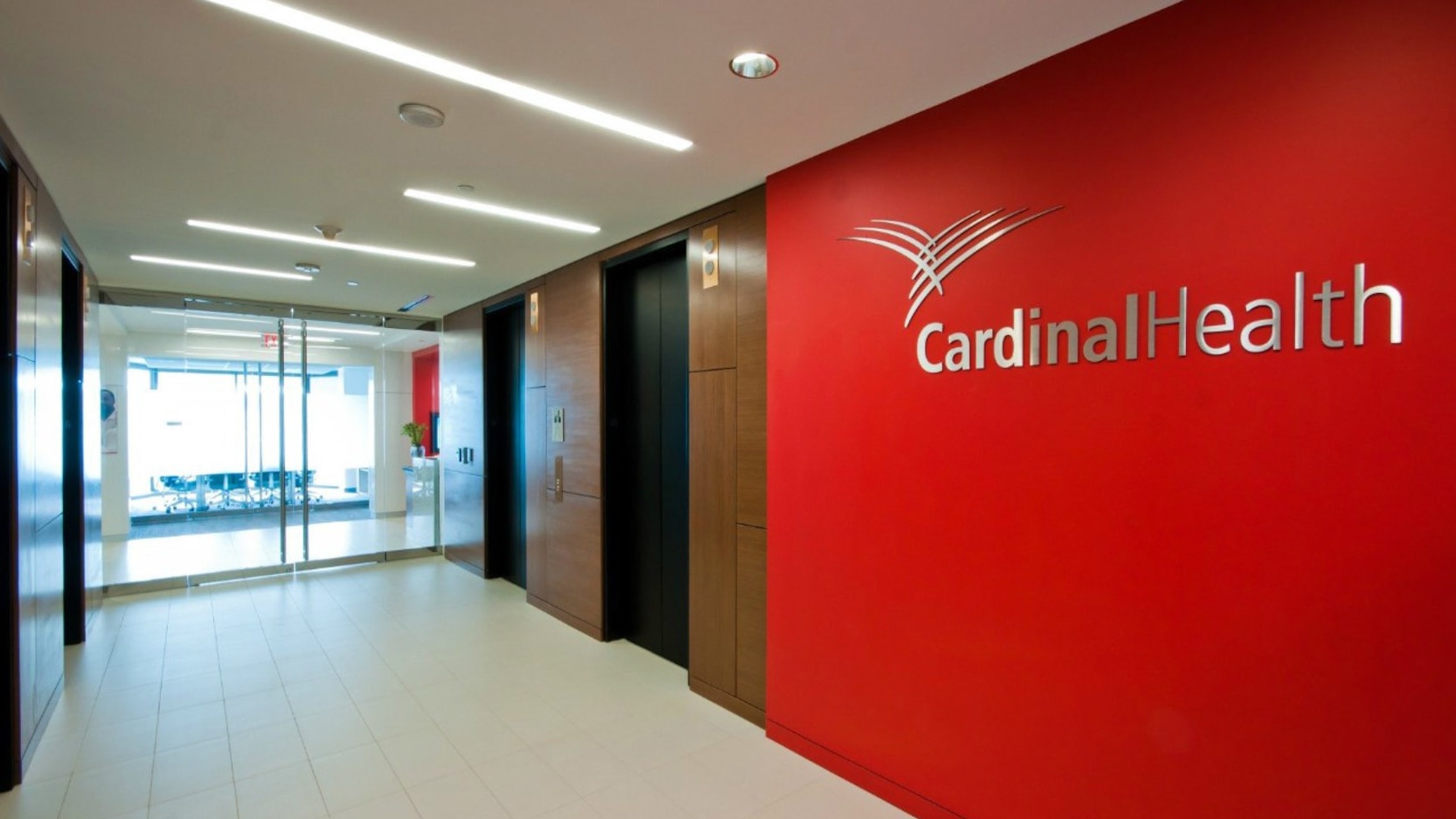
Cardinal Health
- Market value: $14.8 billion
- Most recent dividend increase: 1.0%
- Dividend yield: 3.8%
Cardinal Health (CAH, $50.55) is among the top three U.S. drug distribution companies. The company serves nearly 90% of American hospitals as well as more than 29,000 pharmacies, including a key partnership with CVS Health (CVS).
Pharmaceutical sales surged during March because of the COVID-19 pandemic. As a result, Cardinal Health was able to deliver 11% sales growth and 20% EPS expansion during its March quarter. But it's not all roses for CAH; the company anticipates the postponement of elective medical procedure will negatively affect June-quarter results. It's also looking for flat earnings in 2020.
Cardinal Health and other drug distributors had faced headwinds from lawsuits related to opioid sales, but that threat appears to be subsiding. According to the New York Times, lawyers representing states and cities suing opioid distributors now concede that payouts will be much less than the multibillion-dollar amounts initially targeted.
Cardinal Health is a Dividend Aristocrat that has increased its dividend 34 years in a row. The most recent dividend, announced in May, represented 3.8% year-over-year growth – a slight decline from its 4.7% five-year average. CAH's low-single-digit payout hikes of late can be chalked up to generic drug sales squeezing margins.
Still, Cardinal maintains a conservative 37% payout ratio, supporting a safe albeit slower-growing dividend with plenty of room for future hikes.

Cogent Communications
- Market value: $3.6 billion
- Most recent dividend increase: 3.0%
- Dividend yield: 3.6%
Internet service provider Cogent Communications (CCOI, $76.29) is a quarterly dividend raiser that has hiked dividends 31 quarters in a row. The company is a multinational Tier 1 player and has consistently ranked among the top five network service providers worldwide. Internet access and data delivery is supplied via 58,000 miles of intercity fiber and 36,000 metro fiber miles across North America, Europe and Asia. Cogent provides services in more than 200 major markets and interconnects with over 7,000 other networks.
Cogent's service revenues increased 5% during the March quarter and the number of customer connections rose nearly 6% due to a material increase in data traffic related to work-from-home requirements. That more than offset a slight decline in corporation installs. However, earnings were flat year-over-year on a per-share basis because of higher interest expense.
The company has produced seven years of dividend growth. Its May dividend hike represents a 3.6% improvement from the prior quarter's payout, and a whopping 13% increase from one year ago.
This is one case, though, where dividend risk might be high. The dividend is several times its trailing earnings, and a leveraged balance sheet also suggests extremely little financial wiggle room.

Power Integrations
- Market value: $3.5 billion
- Most recent dividend increase: 10.5%
- Dividend yield: 0.7%
Power Integrations (POWI, $116.49) designs, develops and sells integrated circuits and electronic components used in high voltage power conversion. Power sources incorporating the company's circuits are used in mobile phones, computing and networking equipment, appliances, utility meters, home automation and Internet-of-Things applications. The company is a leader in energy efficiency thanks to its novel EcoSmart technology; more than 15 billion EcoSmart chips has been sold since 1998.
Demand for the company's circuits is rising due to the rollout of rapid chargers for mobile phones and computers, smart appliances, home and building automation, and lithium batteries replacing gas and plug-ins for tools and vehicles.
The company's sales rose 23% during the March quarter, powering a staggering 85% jump in adjusted EPS. Management says that while the near-term demand outlook is uncertain, the company's long-term growth catalysts are intact.
Power Integrations signaled confidence via a 10.5% dividend increase over its previous payment, marking its eighth consecutive year of hikes. Better still, that represented growth of 23.5% over the year-ago period's dividend. Modest 30% payout provides plenty of cushion for future improvements, and POWI ranks among safe stocks with big dividend-growth potential.

Microchip Technology
- Market value: $25.2 billion
- Most recent dividend increase: 0.1%
- Dividend yield: 1.5%
Microchip Technology (MCHP, $100.05) has increased dividends an impressive 63 quarters in a row, albeit at a snail's pace of late. The company's most recent payout hike, announced in May, was 0.1% better than its previous payout, and 0.5% higher than the year-ago distribution.
This chipmaker is expanding its market share in microcontrollers and currently serves more than 120,000 customers worldwide across the industrial, automotive, consumer, aerospace, telecom and computing sectors.
Microchip Technology generated nearly 19% annual sales growth and 7% EPS growth over the past decade. However, it did show COVID-19 headwinds during the March quarter, when sales turned flat and adjusted EPS declined. On a positive note, the company launched several new products during the March quarter and paid down $236 million of debt, increasing cumulative debt reductions to $2.2 billion over the past seven quarters.
Microchip Technology recently boosted its June-quarter sales and profit forecast. Raymond James analyst Chris Caso rates MCHP stock a Strong Buy and noted that cancellations and order delays had been "less than feared."
Jefferies analyst Mark Lipacis expects semiconductor stocks to remain strong even in the face of economic uncertainty because this group is still recovering from a major "inventory correction" in 2018-19. In May, he mentioned MCHP as a semiconductor stock he found particularly interesting.
Low 26% payout allows future quarterly hikes even if COVID-19-related headwinds persist. The company also draws strength from $403 million of cash on its balance sheet and steadily declining debt.

Expeditors International of Washington
- Market value: $12.2 billion
- Most recent dividend increase: 4.0%
- Dividend yield: 1.4%
Expeditors International of Washington (EXPD, $73.54) is a global freight logistics company specializing in air and ocean freight forwarding and consolidation, customs brokerage, cargo insurance, time-definite transportation, warehousing, distribution and customized logistics. The company operates across a global network of 331 offices in 109 countries.
The company recently expanded its new online shipping platform Koho by acquiring Fleet Logistics' Digital Platform in May. Koho is a platform that small shippers use to quote, book, manage and track their shipments online.
Reduced trade with China negatively impacted December-quarter results. The company derives about 25% of its revenues from China import/export, and COVID-related shipping volume declines affected all geographies, resulting in a 6% decline in March-quarter revenues and 11% lower EPS. Significant volume declines in retail, aerospace, automotive and energy freight were only partially offset by higher shipments of medical equipment and supplies.
Expeditors International anticipates COVID-related shipping disruptions will continue through 2020. But it is confident that its exceptional balance sheet, showing no long-term debt and $1.1 billion of cash, will provides ample cash to fund investments and the dividends through the end of the pandemic.
EXPD pays dividends semiannually and has grown payments for 26 years in a row, including a 7%-plus rate over the past five years. A low 35% payout provides a safety net to support the dividend through tough times.

PepsiCo
- Market value: $178.9 billion
- Most recent dividend increase: 7.1%
- Dividend yield: 3.2%
PepsiCo (PEP, $128.93) owns many of the world's best-known snack and beverage brands. In addition to its iconic Pepsi soft drink, the company owns Frito-Lay, Ruffles, Tropicana and Quaker Oats. PepsiCo has sales in more than 200 countries and 23 brands that each generate over $1 billion in annual sales.
In fact, the company boasts the No. 1 worldwide market share in snack foods and the No. 2 share in beverages, with market leading positions in key international countries.
Beverage stockpiling during the March quarter helped PepsiCo achieve nearly 8% organic sales growth and 10% EPS gains on a constant-currency basis. The company also acquired Rockstar Energy Beverages and signed an agreement making it the exclusive U.S. distributor of Bang Energy drinks. These deals enhance the company's growth prospects in the fast-growth, high-profit energy drink category. PepsiCo already has Mountain Dew Kickstart and is partnered with Starbucks (SBUX) for energy drinks.
While PepsiCo has delivered less than 1% annual sales growth in recent years, its foray into energy drinks is reinvigorating its financial performance. The company had been guiding for 4% organic sales growth and 7% core constant currency EPS growth in 2020, but suspended guidance due to COVID-19-related uncertainties. PepsiCo continues to guide for $7.5 billion to be returned to shareholders in 2020, including $5.5 billion from dividends and $2 billion from share repurchases.
Morgan Stanley analyst Dara Mohsenian reiterated his Overweight rating on PEP stock in May, noting three consecutive quarters of 5% two-year average organic sales growth and strengthening trends in the company's Frito-Lay North American business. "We believe Pepsi's snacks business is in a clear position to gain market share post COVID, as its higher velocity and DSD-distributed snack brands should gain shelf space," Mohsenian writes.
PepsiCo has increased dividends 48 years in a row, including a 7.1% hike announced in early May. A high payout ratio of nearly 75% of profits leaves little room for robust dividend growth in the future, however.
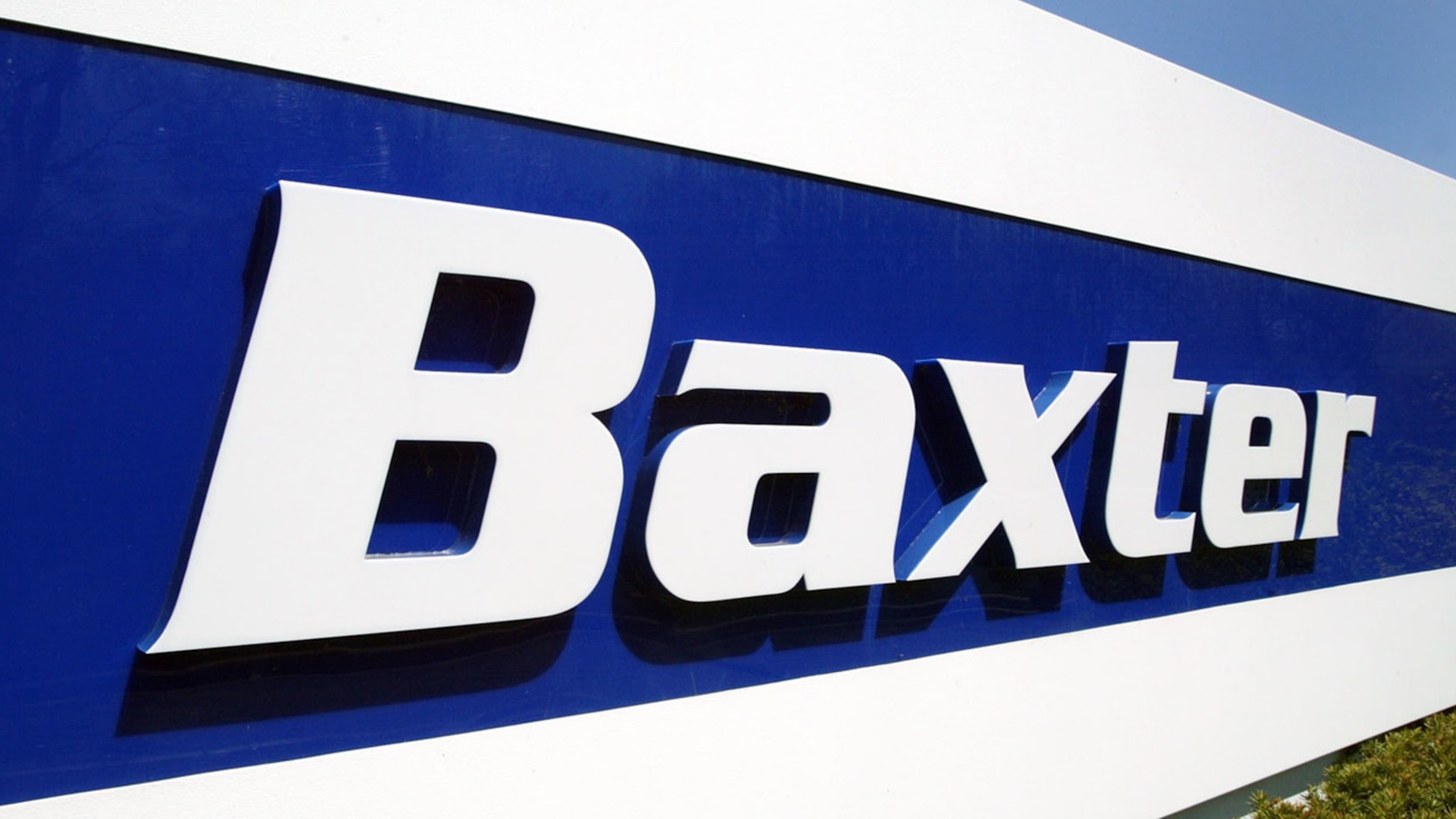
Baxter International
- Market value: $42.9 billion
- Most recent dividend increase: 11.4%
- Dividend yield: 1.2%
Baxter International (BAX, $84.31) is experiencing surging demand for its blood purification, drug delivery and IV infusion products due to the COVID-19 pandemic. This global health care company specializes in products for renal care, medication delivery, pharmaceuticals, clinical nutrition, advanced surgeries and acute therapies, and it produced $11.4 billion of sales last year.
March-quarter sales climbed 8% year-over-year, fueling a 9% improvement in adjusted EPS. This is much better than its average performance over the past three years. Some of its gains came from the company's Oxiris blood filter system, which was granted Emergency Use Authorization by the FDA in April. The product is used to reduce pro-inflammatory cytokine levels in the blood of COVID-19 patients who are experiencing respiratory failure and require blood purification.
Demand for its products is so strong that Baxter recently announced plans to hire an additional 2,000 workers globally, including 800 in the U.S.
The payout, which is growing by more than 11% this year, is targeted at less than 35% of earnings. Baxter also has $4.1 billion in cash to lean on.

PetMed Express
- Market value: $733.7 million
- Most recent dividend increase: 3.7%
- Dividend yield: 3.1%
PetMed Express (PETS, $36.38), one of several popular pet stocks, claims to be America's largest pet pharmacy. The company sells pet medications and related supplies direct to approximately 2.3 million customers via the Internet, which accounts for roughly 85% of sales. The company holds a 6% share of the $5 billion pet medication market and is bigger than all the other mail-order pure plays in the pet space combined.
Consumers shifted more pet medication purchases on-line in response to COVID-19 shutdowns, which helped boost PetMed Express' financial performance. The company acquired approximately 107,000 new customers during the March quarter and experienced 5% growth in orders from new customers. Overall sales rose 15% during the March quarter as a result, and EPS grew by 8%.
The company's full-year fiscal 2020 results paint a less favorable picture. Sales are expected to be essentially flat, while EPS are forecast to shrink 30% due to increased competition. PetMed Express plans to address these challenges by purchasing directly from major manufacturers and becoming more efficient in advertising spending.
Nonetheless, PETS extended its streak of dividend improvements to a decade with a 3.7% increase announced in May – considerably less than its 9% five-year average. Payout from earnings is high at 73%, but the company's debt-free balance sheet and cash on hand (roughly $104 million) gives it some financial flexibility.
Profit and prosper with the best of Kiplinger's advice on investing, taxes, retirement, personal finance and much more. Delivered daily. Enter your email in the box and click Sign Me Up.

Lisa currently serves as an equity research analyst for Singular Research covering small-cap healthcare, medical device and broadcast media stocks.
-
 Ask the Tax Editor: Federal Income Tax Deductions
Ask the Tax Editor: Federal Income Tax DeductionsAsk the Editor In this week's Ask the Editor Q&A, Joy Taylor answers questions on federal income tax deductions
-
 States With No-Fault Car Insurance Laws (and How No-Fault Car Insurance Works)
States With No-Fault Car Insurance Laws (and How No-Fault Car Insurance Works)A breakdown of the confusing rules around no-fault car insurance in every state where it exists.
-
 Why Picking a Retirement Age Feels Impossible (and How to Finally Decide)
Why Picking a Retirement Age Feels Impossible (and How to Finally Decide)Struggling with picking a date? Experts explain how to get out of your head and retire on your own terms.
-
 The 24 Cheapest Places To Retire in the US
The 24 Cheapest Places To Retire in the USWhen you're trying to balance a fixed income with an enjoyable retirement, the cost of living is a crucial factor to consider. Is your city the best?
-
 5 Stocks to Sell or Avoid Now
5 Stocks to Sell or Avoid Nowstocks to sell In a difficult market like this, weak positions can get even weaker. Wall Street analysts believe these five stocks should be near the front of your sell list.
-
 Best Stocks for Rising Interest Rates
Best Stocks for Rising Interest Ratesstocks The Federal Reserve has been aggressive in its rate hiking, and there's a chance it's not done yet. Here are eight of the best stocks for rising interest rates.
-
 The Five Safest Vanguard Funds to Own in a Volatile Market
The Five Safest Vanguard Funds to Own in a Volatile Marketrecession The safest Vanguard funds can help prepare investors for market tumult but without high fees.
-
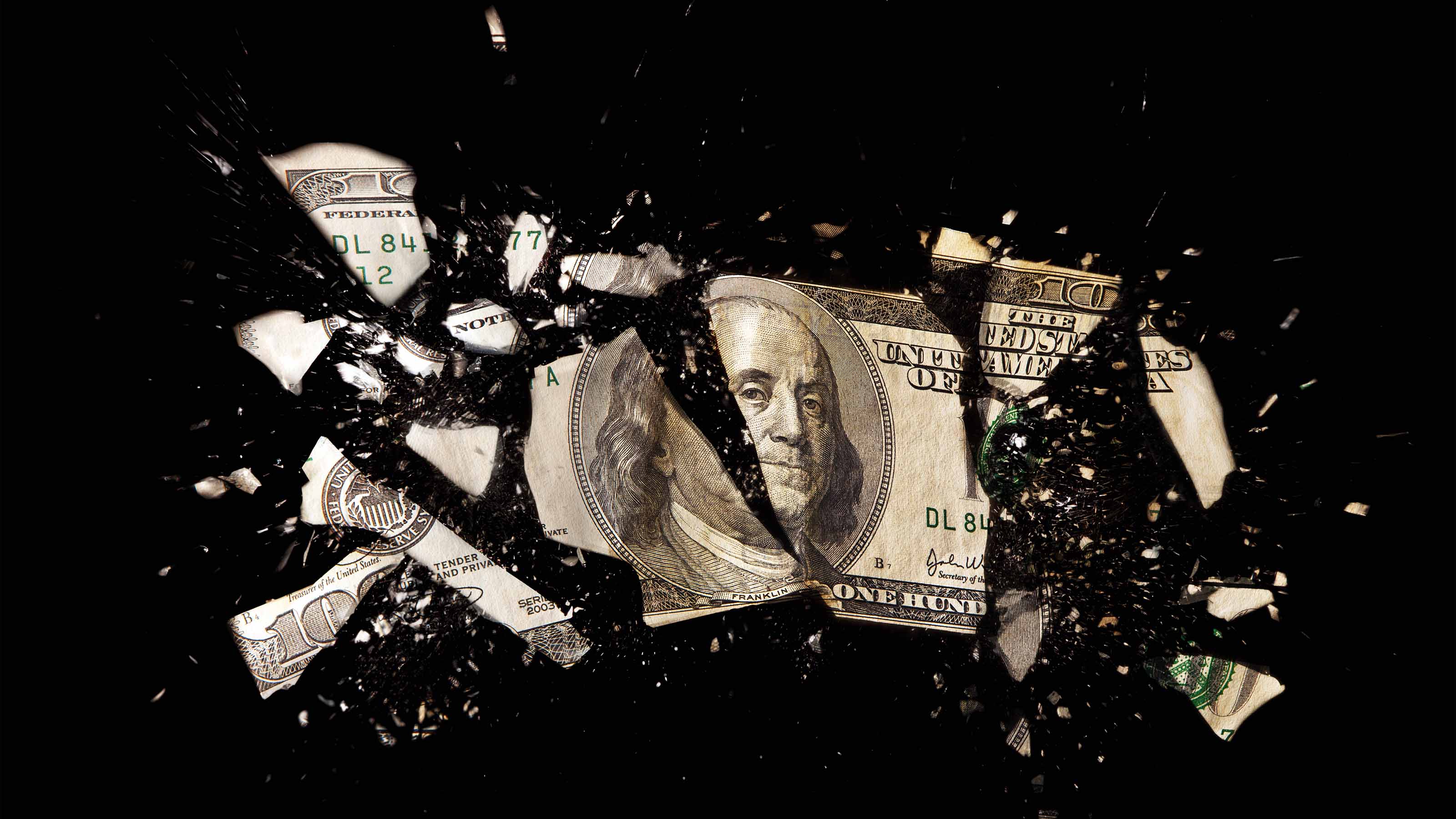 The 5 Best Inflation-Proof Stocks
The 5 Best Inflation-Proof Stocksstocks Higher prices have been a major headache for investors, but these best inflation-proof stocks could help ease the impact.
-
 5 of the Best Preferred Stock ETFs for High and Stable Dividends
5 of the Best Preferred Stock ETFs for High and Stable DividendsETFs The best preferred stock ETFs allow you to reduce your risk by investing in baskets of preferred stocks.
-
 What Happens When the Retirement Honeymoon Phase Is Over?
What Happens When the Retirement Honeymoon Phase Is Over?In the early days, all is fun and exciting, but after a while, it may seem to some like they’ve lost as much as they’ve gained. What then?
-
 5 Top-Rated Housing Stocks With Long-Term Growth Potential
5 Top-Rated Housing Stocks With Long-Term Growth Potentialstocks Housing stocks have struggled as a red-hot market cools, but these Buy-rated picks could be worth a closer look.
